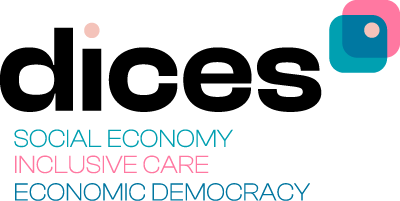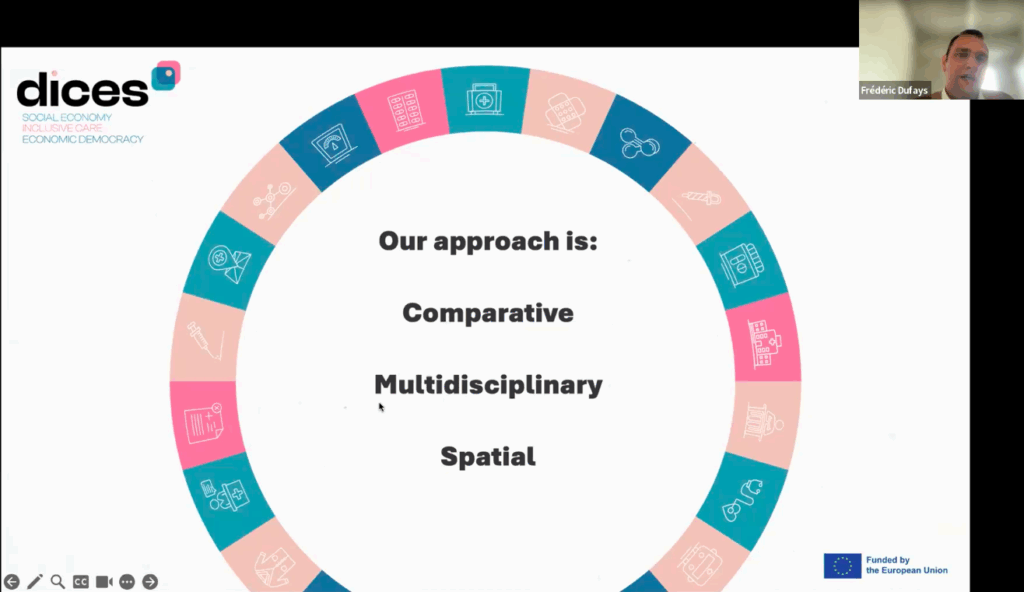On 7 October, the DICES project launched its first webinar “Driving Inclusive Care: Economic Democracy and the Social Economy”. Framed against widening inequalities in long-term care across Europe, this initiative brought together researchers and policy makers to discuss how social economy can help close gaps in access, workforce capacity and funding.
Anna-Maria Galazka, European Commission’s DG EMPL remarked that differences between member states remain stark. “We see huge variations in access and in the resources devoted to care,” she said, pointing to the upcoming midterm review of the EU’s Social Economy Action Plan as a chance to push governments to strengthen national strategies. She argued that social economy actors must be more directly involved in service design, financing and procurement reforms if Europe is to meet the challenge.
For Frédéric Dufays, KU Leuven, the webinar was also a moment to set out the structure of the DICES project. The initiative is mapping the social economy’s contribution to tackling exclusion and testing new approaches in left-behind regions. “Our goal is to understand the barriers and drivers of social economy development, and to experiment with models that can be scaled or replicated,” he explained, noting that co-design with local practitioners will be central to the work.
Franziska Görmar, Leibniz Institute for Regional Geography urged a broader understanding of care. Drawing on the concept of CARE as “maintaining, repairing and creating” social relations, she said inclusion depends not only on services but also on how communities sustain their bonds. That, she argued, is where economic democracy can make the biggest difference: by giving people greater voice in shaping the systems that affect their lives.
The session marked the start of a series of webinars under the DICES Action Plan, with future editions set to focus on gender, diversity and wider global perspectives. As we move forward with the project timeline, results from the project’s research activities will also be shared.
At this link, you can find the agenda of the webinar.
Stay tuned and follow us on LinkedIn to stay up to date with all the DICES’ developments.


